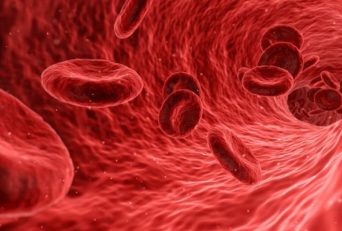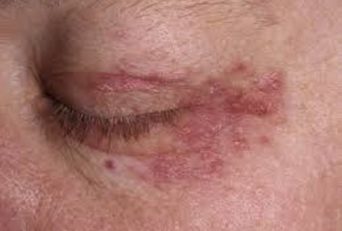Hormones are the chemical messengers of our body. They affect and regulate its processes and make sure it functions properly. That is why their levels should be balanced.
You can balance your hormones naturally by following the methods in this article.
Table of Contents
How To Balance Hormones Naturally?

Performing certain activities that change our lifestyle for good can help in maintaining and recovering the hormonal balance.
These activities include:
1. Exercise
Physical exercise is in every routine. It has benefits for the human system in all the aspects. It helps in keeping the body and the mind fit and efficient. For hormonal balance, the best exercise type is HIIT (High Intensity Interval Training).
Exercise, in general, helps in balancing hormones by reducing inflammation, regulating body mass, lowering stress, regulating appetite and enhancing sufficient sleep.
HIIT and burst training regulate production and use of testosterone, growth hormone, and insulin in the body.
It also helps in boosting the immune system and alertness; it improves metabolic and cardiovascular outcomes. Therefore, make sure you do not perform it in excess.
2. Sleep & Fight Stress
Seven to eight hours of sleep every night avoids the risk of hormonal imbalance by regulating the stress hormone “Cortisol”. Cortisol levels increase mainly due to lack of sleep, chronic stress and regular use of corticosteroids.
Stress also affects the normal levels of other hormones such as glucocorticoids, growth hormone, prolactin, and catecholamine.
Poor sleep is linked to decreased immunity, inefficient work performance, anxiety, depression, and weight gain. The ideal sleep timing is from six to ten every day.
3. Walk In Nature
Walking is a simple exercise that can easily balance the hormones. Doing it in a green and natural space fills your air with fresh air and rejuvenates the mind.
Also, walking in nature has been shown to reduce the stress hormone levels, improve the immune system, the lymphatic system, and the muscular system without excessive physical strain.
4. Yoga Position For Detox
Practicing yoga helps in maintaining the balance of the body and the mind. A particular pose, commonly known as “Legs up the Wall” is especially good for regulating the hormone levels.
This pose maximizes the lymphatic circulation in the lower body improving the removal of toxins from it by reversing the gravitational flow in the legs.
5. Magnesium Massage
Magnesium is an essential mineral for the body. Its absorption is more efficient through the skin, which makes magnesium oil more effective than magnesium dietary supplements to provide the body with it.
It consists of a mixture of magnesium chloride flakes and water. Magnesium is very important for the system and it regulates other minerals like calcium, potassium, and sodium.
6. Balance Leptin
The lack of leptin hormone leads to frequent cravings, and in turn, an increase in weight as the cravings are usually for high-calorie content food.
To regulate leptin levels, you should increase the consumption of unprocessed food items that are high in proteins like fish, avocados, eggs, olives, etc. In addition, avoid at any cost snacking in between meals.
7. Deep Breathing
Fifteen minutes of deep breathing increases the sensation of wellness in a person and decreases the levels of stress. It reduces hot flashes and night sweats, making your body more efficient.
8. Practice Lunaception
This technique aims at regulating the menstrual cycle of a woman with the lunar cycle. It is based on the control of the presence and absence of light during sleep.
In order to make the days of full moon coincide with the day of ovulation and the days of new moon coincide with the days of menstruation. This coordination brings about a natural balance of the female hormones.
9. Replace Your Cosmetics
Whatever comes in contact with the skin, can enter through its pores into the bloodstream. This includes the toxic substances that beauty products and cosmetics include.
To avoid hormone disruption and damage to the kidney and liver, you should make use of products that are made of natural and organic ingredients.
10. Get A Hug
Studies have proven that an affectionate hug of around twenty seconds increases the secretion of oxytocin, known as the hormone of happiness.
What To Eat To Balance Hormones?
A balanced diet is essential for a balanced system. Healthy foods regulate the hormones of the body and boost its health. A balanced diet provides you a clear skin, improved moods, fertility, and energy.
It should include the following components:
1. Proteins
These are obtained from food items like seeds, lentils, beans, sprouts, quinoa, organic meats, fruits, and vegetables, and wild caught fish.
Among these, the following items are the ones that help in balancing the hormones the most:
i) Broccoli, along with cauliflower, Brussels sprouts, and cabbage have substances that help in regulating the estrogen levels and have been shown to prevent breast cancer.
ii) Flax seeds, sunflower seeds, bean sprouts, and legumes have phytoestrogens that help in balancing the hormones overall.
2. Fats
Healthy fats can be obtained from nuts and seeds, coconut oil, avocado oil, egg yolks, and raw butter and ghee. Here is how they help in maintaining the hormonal balance.
i) Coconut Oil And Avocados
These are termed as healthy fats for a reason. They provide a kind of fatty acids that keep the hormones levels within the desirable levels, lower inflammation, boost metabolism, and aid in weight loss.
In addition, coconut oil has antibacterial and antiviral effects and speeds up the metabolism, while avocados improve cardiovascular health, controls the appetite and provides fiber, vitamins, magnesium and potassium.
ii) Egg Yolks
Egg yolks are filled with nutrients necessary for the wellbeing of the system, including vitamin A, vitamin D, Selenium, and Cholesterol.
These substances have a natural steroid effect on the body, help in regulating the thyroid hormone and maintaining healthy and sufficient levels of cholesterol, necessary for the functioning of the sex hormones.
iii) Raw Butter (Ghee)
This pure dairy product provides fat-soluble vitamins like A, D, E, and K2; as well as various types of fatty acids that support the immune system, boost metabolism and keep microbes like bacteria and viruses at bay. These functions help in the maintenance of the hormonal balance.
iv) Flaxseeds, Walnuts, Tofu, Olive Oil, And Wild Caught Salmon
These are very rich sources of omega-3, which helps in reducing inflammation and maintaining cognitive functions. It is especially beneficial for women, as it soothes menstrual cramps and menopausal symptoms. It also has antioxidant effects.
v) Almonds
They help in regulating the blood sugar level thereby controlling insulin. They are also known to regulate the levels of male hormones such as testosterone and improving the skin health and appearance.
3. Antioxidants
These are mainly found in vegetables, particularly in the following ones:
i) Raw Carrots
These have a special fiber that helps in detox processes and brings down the excess of estrogen in the body. By doing this, it balances the hormones and soothes the symptoms of premenstrual syndrome.
Regular consumption of carrot improve the balance between progesterone, estrogen, and cortisol, helping against epilepsy, insomnia, and arthritis.
ii) Dark Leafy Vegetables
Vegetables like raw spinach and kale, are high in magnesium, iron, and zinc. These minerals are necessary for the enzymatic reactions that take place in the body and the regulation of hormonal levels.
iii) Other Vegetables
Vegetables rich in antioxidants include asparagus, broccoli, spinach, cabbage, cucumber, cilantro, bell peppers, onions, tomatoes, beets, etc.
Other Food Stuff, Herbs, Supplements
Sometimes we need to maintain the necessary levels of hormones with the use of supplements that provide us with certain substances.
Substances that help the most in maintaining a hormonal balance are:
i) Vitamin D
The supplements of this vitamin are required nowadays to compensate the lack of sunlight the skin is exposed to. This vitamin is necessary to regulate the production of the DNA and RNA, the neuromuscular system and the hormonal balance.
Vitamin D is best obtained naturally, that is, sunbathing at the early morning hours. However, when this is not possible, it can be taken in the form of tablets and supplements.
ii) Gelatin
Natural and unprocessed gelatin is rich in nutrients like calcium, magnesium, and phosphates. These promote a healthy digestion and regulate the hormone production.
The caution is that the gelatin consumed should be free from chemicals and toxins, and completely natural.
iii) Herbal Supplements
Adaptogen herbs are healing plants that enhance the hormonal balance and protect the body from the symptoms caused by excessive strain and tension, as well, as boosting the immune system, improving the thyroid function, lowering cholesterol, and regulating insulin and glucose levels in the blood.
iv) Shatavari
This herb has been traditionally used in Ayurveda for regulating mood swings, irritability, and other PMS symptoms.
v) Ashwagandha
A very popular herb used for boosting the energy levels and reducing fatigue and stress. This herb also restores the hormonal balance by acting specially on the cortisol levels, testosterone, androgens, and thyroid hormone.
vi) Chaste Tree Berry
It helps in regulating prolactin and progesterone.
vii) Red Raspberry Leaf
It reduces PMS, cramping, and increases fertility. It is rich in calcium and available in the form of capsules.
viii) Liver Supplements
Liver provides vitamin A, improves the thyroid and the health of the liver, enhancing the synthesis of detox hormones. It can be consumed as food or as capsules
ix) Portabello Mushrooms
They are a rich and natural source of vitamin D, especially the ones that have been grown in open natural areas under the sunlight.
x) Spices
Turmeric, ginger, cumin, etc are also beneficial for the regulation of hormonal balance, and reduction of inflammation and pain.
What To Drink?
Certain fluids and beverages have a special regulatory function on the body system.
These are the fluids that help in balancing hormones:
1. Water
Water is essential for life, which is why the body interprets dehydration as a life-threatening situation. This increases the levels of the stress hormone and affects other hormones such as the thyroid and insulin.
To maintain the hormonal balance, you should drink ten to twelve glasses of water every day without fail added to the water you obtain from foods like vegetables and fruits.
2. Holy Basil
Basil can be taken in the form of tea by boiling a few of its leaves in a cup of water for some minutes and straining it. It can also be consumed raw or in the form of capsules after consulting the doctor.
This plant stabilizes the level of cortisol and in turn prevents its adverse effects on the thyroid gland, the ovaries, and the pancreas. It is also known to improve the mood and mental clarity.
3. Asian Ginseng
This herb is also called Korean red ginseng. It regulates the gland responsible for the secretion of cortisol, maintaining the balance of the hormone.
It is suggested that it also relieves some symptoms of menopause, and improves sperm motility and production.
The consumption of the herb should be in cycles and started after consulting it with the doctor. It can be taken in the form of tea.
4. Fenugreek Seeds
Consuming fenugreek seed is recommended for increasing lactation and improving glucose metabolism. A teaspoon of these seeds can be added to a cup of hot water for 15 minutes before straining it for consumption. Fenugreek can be substituted by fennel.
5. Maca Root
A quarter of a teaspoon of maca root powder can be added to a cup of water, juice, tea, or yoghurt. This extract boosts the hormone regulation by reversing hypothyroidism, increasing libido and fertility, and improving vitality. It can be consumed daily for a few months.
6. Chasteberry
This berry is especially effective for regulating the hormonal balance in women, as it mimics the effects of progesterone. It also stimulates the pituitary gland and controls the estrogen balance.
The extract has been used for treating menstrual problems, preventing prostate cancer and promoting fertility overall.
The powder capsule should be taken daily for a few months with water. Caution should be taken to not to consume this herb during pregnancy or medicated hormonal treatments.
What To Avoid?
There are certain things that we consume on a regular basis, unaware of the adverse effects they have on our body.
To recover and maintain your hormonal equilibrium, be cautious about:
1. Birth Control Pills
These hormonal pills should be strictly avoided in order to maintain a natural balance of the hormones in the body.
These pills have excessively high levels of estrogens that can lead to several health disorders like increased risk of breast cancer, bleeding in between the menstrual cycle, blood clotting, migraines, increased blood pressure, gain of weight, nausea, mood swings, breast tenderness, back pain, etc.
There are safer methods of birth control that should be given preference over this one.
2. Soy
Excessive consumption of soy can cause inflammation in the gut by inhibiting digestive enzymes and disrupting the hormonal balance due to its similarity with estrogen. If it is to be consumed, it should be at a moderate level.
3. Vegetable Oils
Vegetable, peanut, canola, soybean oils and margarine are very high in polyunsaturated fats. These are molecularly unstable and therefore more prone to oxidation.
They can increase cell mutation and cause malfunctioning of the hormones leading to their imbalance. A healthier alternative to vegetable oils is avocado oil, virgin olive oil, traditional butter, and coconut oil.
4. Toxin
Plastics, pesticides, cleaning products, and many other items that we use in the modern times have the potential to mimic the hormones of the human body. This dangerous feature can lead to hormone imbalance among other health problems.
That is why the use of glass, Teflon, organic food, and natural cleaners should be encouraged over the chemical-containing conventional products.
Toxins found in water can be removed by using activated charcoal filters and reverse osmosis techniques. Toxins in the air can be reduced by keeping pollution sensitive plants.
5. Caffeine
Caffeine triggers the stress hormone and can intensify the endocrine imbalance. Instead of caffeine, try drinking herbal teas. Gradually reducing the caffeine intake by avoiding black tea, coffee, and soda is the first step.
6. Leaky Gut Syndrome
This condition causes inflammation that impacts the glands that secrete hormones. It is caused due to the lack of probiotics in the intestine and the presence of undigested food particles such as gluten.
Hence, these leak to the bloodstream causing the inflammation and triggering autoimmune disorders like thyroid abnormalities and arthritis.
But, It can be prevented by avoiding the consumption of processed foods and refined sugar; and increasing the consumption of food high in fiber like sprouts and vegetables.
7. Toxic Cosmetics
The conventional beauty products contain highly harmful chemicals like DEA, sodium lauryl sulfate, and parabens to name a few. Switch them for more natural options and cosmetics made with organic ingredients like coconut or castor oil.
8. Plastics
The usual containers are made of plastic and aluminum. They contain BPA, which is a toxic chemical for the body. Replace these containers glass, stainless steel, ceramic, or cast iron ones. This will avoid the addition of chemicals into the food.
9. Alcohol
High levels of alcohol can cause liver damage, pancreas dysfunction, low testosterone, high estrogen, anxiety, and malnutrition. Alcohol consumption should be less than two to three times per day.
Causes Of Imbalance In Hormonal Levels
Imbalance in the hormonal levels can be caused due to various reasons like diet, medical history, genetics, toxins, stress, etc.
Sometimes the imbalance occurs due to a combination of these reasons:
1. Obesity
For the metabolic activities to occur in an appropriate way and rate, a healthy weight is required. Excessive weight also affects the regulation of the substances of the body in an adverse way.
2. Gut Problems
The health of the intestine has a major role in hormonal balance. Leaky gut syndrome and lack of probiotic bacteria can lead to inflammation in the gut, causing hormonal problems like diabetes.
3. A Poor Diet And A Sedentary Lifestyle
It can deteriorate the health of the body and make it prone to inflammations.
4. Toxic Substances
The toxic substances found in pesticides, drugs, alcohol, chemical-containing products, microbes, etc. could lead to an imbalance in the hormonal levels.
Unhealthy habits like lack of sleep and chronic stress can also cause hormonal imbalances.
5. Genetic Susceptibility
Sometimes heredity makes a body to be more susceptible to the health disorders that were experienced by other family members.
Symptoms Of Imbalance In Hormonal Levels

When hormonal imbalance takes place, it manifests in the body with the following signs:
- Irregular menstruation.
- Changes in appetite and weight.
- Digestive disorders.
- Depression, anxiety.
- Insomnia, fatigue.
- Low libido, infertility.
- Hair thinning and hair loss.
The symptoms depend on the disorder that the hormonal imbalance causes. Common disorders associated with hormonal imbalance include:
1. Diabetes
The abnormal sugar level in the blood lead to weight gain, fatigue, breathlessness, skin problems, dry mouth, vision disorders, nerve damage, etc.
2. PCOS
This stands for Polycystic Ovarian Syndrome. It causes acne, abnormal hair growth, weight gain, infertility, and susceptibility to diabetes.
3. Hypothyroidism
Disorders in the thyroid levels are manifested as slowed metabolism, fatigue, anxiety, irritability, digestive disorders, weight gain, irregular menstruation, etc.
4. Hyperthyroidism
Commonly called Grave’s disease, it causes weight loss, insomnia, irregular heartbeats, anxiety, thinning hair, etc.
5. Estrogen Dominance
It leads to changes in the sleep, weight, and appetite, higher stress, and slowed metabolism.
6. Low Estrogen
It leads to a low sex drive, menstrual irregularity, mood swings, and reproductive problems.You can increase production of the estrogen in your body by including estrogen rich food to your diet.
7. Low Testosterone
Low testosterone levels cause erectile dysfunction, fatigue, mood swings, weight gain, and muscle loss.
8. Adrenal Fatigue
It leads to tiredness, muscle and body pain, depression, anxiety, and reproductive and sleep problems.
Treatment
Hormones can be balanced with the help of medical treatments like:
1. Synthetic Hormone Replacement Therapies
It consists in injecting artificially made hormones into the body to compensate the lack of natural hormones or to regulate their level.
Human growth hormones therapy also works better.HGH before and after results shows better light on this.
2. Birth Control Pills
These pills increase the level of the female hormones in the body.
3. Insulin Injections
They are used by numerous diabetic patients to regulate their blood sugar levels.
4. Thyroid Medications
These are prescribed by the doctor to counteract the symptoms produced by thyroid abnormalities.
These conventional treatment methods are often accompanied by side effects. The best option is to treat the hormonal imbalance in a natural way as much as possible.
Here are some natural remedies classified into things you can consume and activities you can do to maintain a healthy hormonal balance.
Final Talk
Hormonal imbalances are a common condition among many people. They lead to disorders like diabetes, thyroid disorders, infertility, etc. that are becoming more frequent with time.
The use of the described natural remedies can help in preventing these diseases by maintaining hormonal balance in a natural and healthy way.





